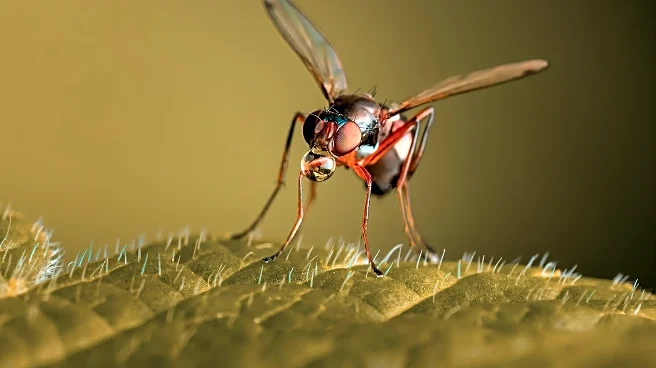What is the story about?
What's Happening?
Researchers have identified a new species of Bartonella bacteria in sand flies from the Amazon National Park in Brazil. This discovery raises concerns about potential health risks, as Bartonella species are known to cause diseases such as Carrión's disease. The bacteria's DNA is similar to other Andean species, suggesting possible transmission beyond the Andes. The study, conducted by Brazilian researchers, aims to investigate the presence of Bartonella DNA in sand flies and explore the potential for disease transmission. Further research is needed to determine if this new species poses a threat to human health.
Why It's Important?
The discovery of a new Bartonella species in Brazil highlights the need for vigilance in monitoring emerging infectious diseases. Bartonella bacteria can cause long-lasting infections and are particularly concerning for individuals with immune deficiencies. Understanding the prevalence and transmission of these bacteria is crucial for public health, especially in regions with limited access to healthcare. The research underscores the importance of studying disease vectors and their potential impact on human health, as new strains may emerge and adapt to different environments.
What's Next?
Researchers plan to continue investigating the presence of Bartonella bacteria in various biomes and identify potential animal reservoirs. Collaboration with healthcare professionals is essential to assess the risk of infection in humans and develop strategies for prevention and treatment. The study's findings may lead to increased awareness and research efforts to address neglected tropical diseases. Further exploration of the bacteria's impact on human health and its potential co-infection with other diseases is anticipated.
















